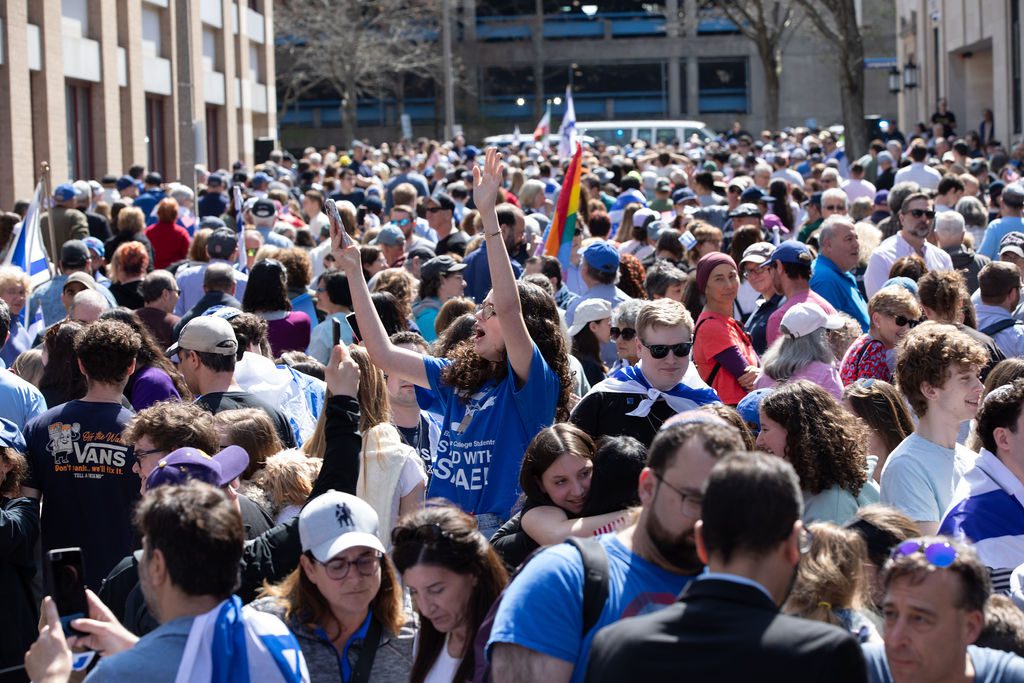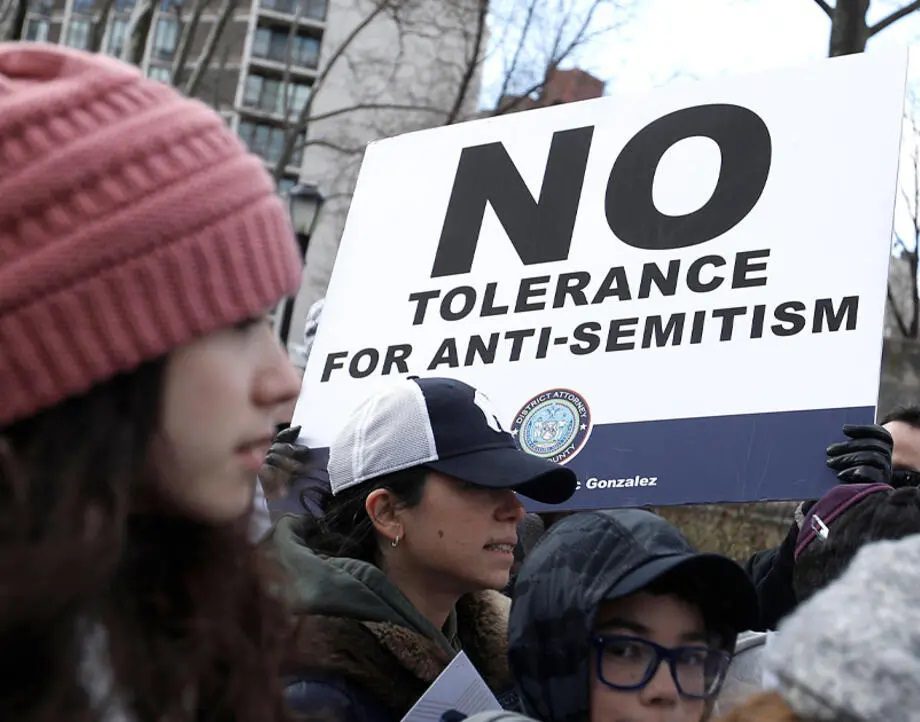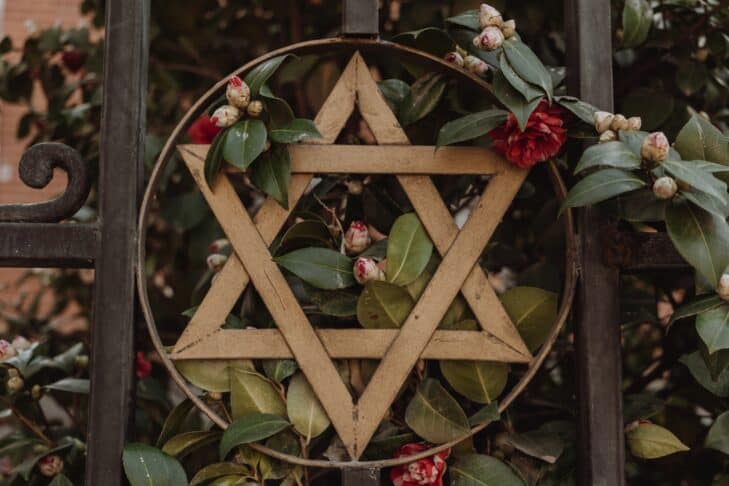By Dan Brosgol
The day after Maccabi Haifa beat Juventus in the UEFA Champions League, I wore one of their green-and-white jerseys to work—I have an embarrassingly large collection of them from all the time I’ve spent in Haifa. It was a great conversation starter with all the people I ran into, but there was always a little pause when I wondered if I should mention that Maccabi is an Israeli team. It’s not dissimilar to when British people ask me why I’m a Liverpool fan and after some hesitation I talk about how I started rooting for them when Yossi Benayoun signed there.
Every day is rife with these little hinges of decision points. Should I post about Maccabi’s win on Facebook? Yes. Should I change my profile frame to say “I stand with Israel” during rocket attacks from Gaza? I did. Should I retweet the Israel Defense Forces posts about the terrorists killed in Jenin? Did I? I forget. How stridently should I take up pro-Israel activism on social media? Tough one.
In some respects, wearing the Maccabi jersey felt easy; the Jewish star is subtle, and the Hebrew print is small on the badge. But will I wear my Team Israel baseball sweatshirt around for a day in public during the World Baseball Classic? The sad answer is that until a few years ago, I would have done it without thinking, but now it’s a maybe. And if I’m being honest, it’s probably a no. Try as you might (and I’m not trying hard at all) to find one, in almost every case there is no border between anti-Zionism and antisemitism, and I’d immediately be a target.
I have the great privilege of making these calculations in Middlesex County, home to roughly 180,000 Jews; if you do the math, about one out of every 10 people you run into around the 128 corridor is Jewish. That’s one heck of a Jewish bubble—1% of all the Jews in the world live around here, and if you draw a circle around 495 and Southern New Hampshire, more than 2% of all the Jews anywhere live within an hour of my house. Is there strength in those numbers? You bet. I should feel comfortable expressing my Judaism, whether rooted in religion, Zionism or culture, without fear. But it’s not that easy.
To be fair, it wasn’t that easy, well, ever. Generations ago, Jewish kids in Boston used to get beat up on their way to Boston Latin School. When I was a kid, I was teased mercilessly for being Jewish and was told in no uncertain terms in middle school that I killed Jesus. And a few years ago, our town made headlines nationally (and in Al-Jazeera, somehow) for a spate of antisemitic incidents. And, in case you forgot, there’s plenty more antisemitism to go around today; I’d list some of those recent news stories here, but I don’t have enough room.
I walk around with Judaism burning through my veins all day, every day, yet when people see me, I’m just another white guy, with all the privilege attached to it. But the second I show my Judaism, there’s an instant risk, and it has to be calculated. And if I’m having second thoughts in one of the largest Diaspora Jewish communities in the world, then imagine how it is for Jews just about anywhere else. Would you feel safe walking around visibly Jewish in Malmo, Sweden? In Paris? In certain parts of Florida? How about when the Proud Boys were riding the T to and from Malden? The answer to all of those questions is no.
If there’s good news, it’s that the demise of the American Jewish community has been greatly exaggerated—we are still alive and kicking. And despite the never-ending drumbeat of terrible news, it’s fair to say there’s nowhere I’d rather be Jewish, although as I have muttered for some time now, Toronto and Tel Aviv are also looking pretty good. The thread that ties all those cities together is that there are Jews there, there is community there, and there is great strength in those numbers.
While it’s never a bad time (or is it never a good time?) to joke about our holidays and their usual refrains, it’s worth repeating: You know the punch line—they tried to kill us, we survived, let’s eat; it’s gallows humor, but it’s also true. In the spring, in particular, we celebrate Purim, perhaps the greatest celebration of a triumph over antisemitism, and Passover, an unlikely tale of survival, redemption and freedom from oppression. And as far away as those events feel from today, they are dangerously and disappointingly relevant.
Do you need more prodding? During the V’hi She’amda passage at the Passover seder, we sing: “Not only one enemy has risen up against us to destroy us, but in every generation they rise up to destroy us.” The happy-ish ending to that text is, “But the Holy One, Blessed be He, delivers us from their hands.”
But not always.
The danger in history repeating itself is that history has been pretty rough for us. If we’re being honest, there’s not usually a hero who rises to defend us, a miracle to save us or a golem to protect us; more often than not our hope for salvation ends up being like waiting for Godot. But through it all, a 2,000-year Diaspora featuring the Crusades, the Inquisition, blood libels, the Holocaust and untold other tragedies, we are still here.
So, I guess I’ll bet on us, but with my eyes wide open. I’m just not sure if I’ll wear that sweatshirt around Whole Foods. But maybe I should.
Dan Brosgol has been writing for JewishBoston.com since 2010. He lives in Bedford with his wife and five children.





